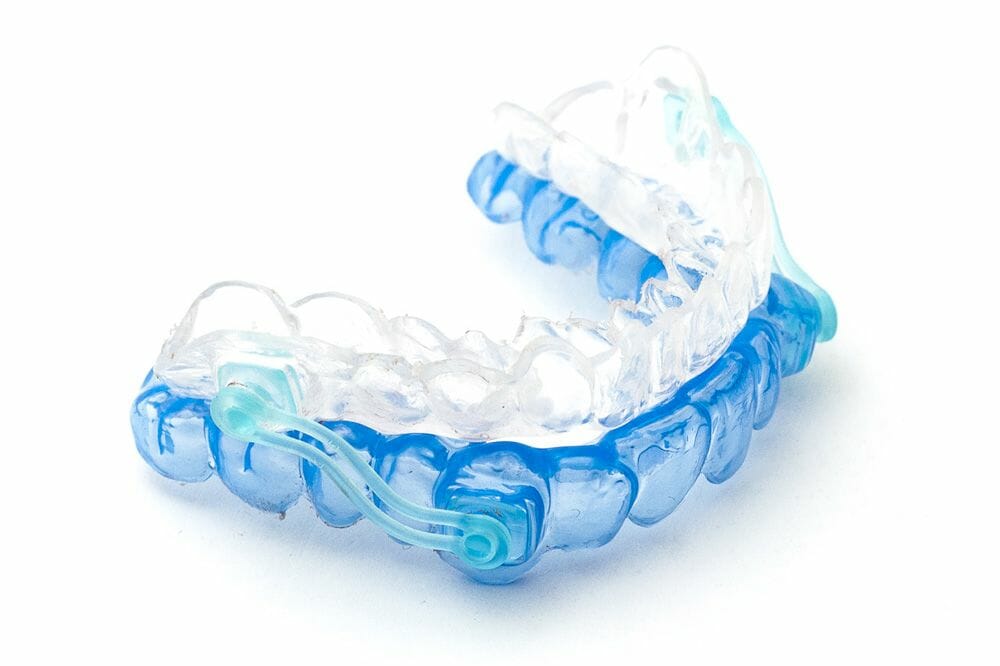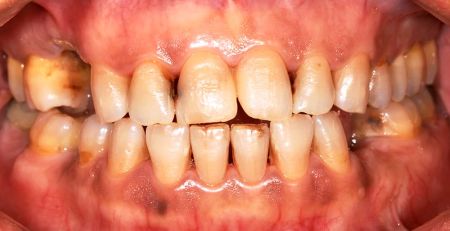Table of Contents
Sleep apnea is a severe sleep disorder that affects millions of people worldwide. It is characterised by pauses in breathing or shallow breaths while sleeping.
These interruptions can happen often at night, leading to various health problems. It is crucial for those affected to understand sleep apnea, its effects, and the potential treatments, including those offered by dental professionals.
What is Sleep Apnea?
There are three types of sleep apnea: obstructive, central, and complex.
Obstructive Sleep Apnea
Obstructive sleep apnea (OSA) is the most common and occurs when the throat muscles intermittently relax and block the airway during sleep.
Central Sleep Apnea
Less common central sleep apnea involves the central nervous system and occurs when the brain fails to signal the muscles that control breathing.
Complex Sleep Apnea
Complex sleep apnea syndrome is a combination of both obstructive and central sleep apnea.
Symptoms of Sleep Apnea
Snoring is the most noticeable sign of sleep apnea, although not everyone who snores has this condition. Other symptoms include:
- Excessive daytime sleepiness
- Episodes of breathing cessation during sleep
- Abrupt awakenings accompanied by gasping or choking
- Morning headache
- Difficulty concentrating during the day
- Mood changes, such as depression or irritability
- High blood pressure
- Nighttime sweating
- Decreased libido
Effects of Sleep Apnea
The effects of sleep apnea can be far-reaching and include:
Cardiovascular and Metabolic Risks
One of the significant effects of sleep apnea is an increased risk of several severe health conditions.
Individuals with sleep apnea are at a higher risk of developing high blood pressure, which can lead to a heart attack and stroke.
Additionally, there is a link between sleep apnea and an increased risk of obesity and diabetes, further compounding the potential for cardiovascular issues.
Risk of Heart Failure
Sleep apnea also significantly increases the risk of heart failure. The repeated interruptions in breathing put a strain on the heart, which over time can lead to heart failure, a serious condition where the heart is unable to pump blood effectively.
Impact on Heart Rhythms
Individuals suffering from sleep apnea often experience irregular heartbeats or arrhythmias. The stress and strain caused by recurrent waking and oxygen deprivation can lead to abnormal heart rhythms, which, if left unchecked, can be life-threatening.
Effects on Mental Health and Attention
Sleep apnea can have a detrimental effect on mental health, particularly in worsening symptoms of ADHD (Attention Deficit Hyperactivity Disorder). The lack of quality sleep affects concentration and attention and can exacerbate ADHD symptoms, making it more challenging to manage daily tasks and maintain focus.
Increased Accident Risk
Finally, the fatigue caused by disrupted sleep in sleep apnea patients significantly increases the likelihood of work-related or driving accidents. The drowsiness and lack of alertness associated with poor sleep can impair judgment and reaction time, making it dangerous to operate machinery or vehicles.
The Role of Dentistry in Treating Sleep Apnea
Dentists play a vital role in diagnosing and treating sleep apnea. During regular dental check-ups, dentists can look for signs indicating sleep apnea, such as worn tooth surfaces (a sign of grinding common in those with sleep apnea), a small jaw, or a red throat with white spots.
Dental Devices
One of the most common dental treatments for sleep apnea is oral appliances. These devices are designed to keep the throat open. Some appliances hold the tongue differently, while others slide the jaw forward for better airflow.
Custom-Fit Appliances
Custom-fit appliances provided by dentists can be more comfortable and practical than over-the-counter devices. These are made after an impression of the teeth and tailored to fit perfectly.
Follow-Up Care
Regular follow-up care with the dentist is crucial. They can adjust the appliance as needed to ensure comfort and effectiveness and check for any potential side effects, such as changes in bite.

If you suspect you have sleep apnea, it’s essential to see a healthcare provider for a diagnosis.
A dentist specialising in sleep apnea can provide a custom solution if an oral appliance is recommended.
Remember, treating sleep apnea is not just about improving sleep quality; it’s about enhancing overall health and quality of life.
Take the Next Step Towards Better Sleep and Health
Dealing with sleep apnea can be a challenging journey, but you don’t have to walk it alone. If you’re struggling with symptoms of sleep apnea or have been diagnosed with this condition, help is available.
Consider visiting your nearest Amazing Smiles Dental Clinics for personalised assistance with sleep apnea and anti-snoring dental devices.
With dentists on the Gold Coast and Brisbane’s surrounding areas, Amazing Smiles is well-equipped to provide you with the care and support you need.
Our experienced dental professionals at Amazing Smiles are dedicated to helping you achieve better sleep and improved overall health.
We understand the complexities of sleep apnea and are committed to providing practical solutions tailored to your unique needs.
Opting for a custom-fit dental device allows you to enjoy a comfortable and effective treatment alternative to traditional CPAP machines.
Don’t let sleep apnea control your life any longer. Book your consultation today and discover how our specialised anti-snoring dental devices can help you manage your sleep apnea.
Web Disclaimer: This article is provided for informational purposes only and does not constitute medical advice, diagnosis, or treatment.
Always consult your healthcare provider or a qualified medical professional for personalised advice and treatment for specific health conditions, including sleep apnea.
The information in this article is not intended to replace professional medical judgment or guidance. The treatments and procedures mentioned herein may not suit everyone and are subject to risks.





